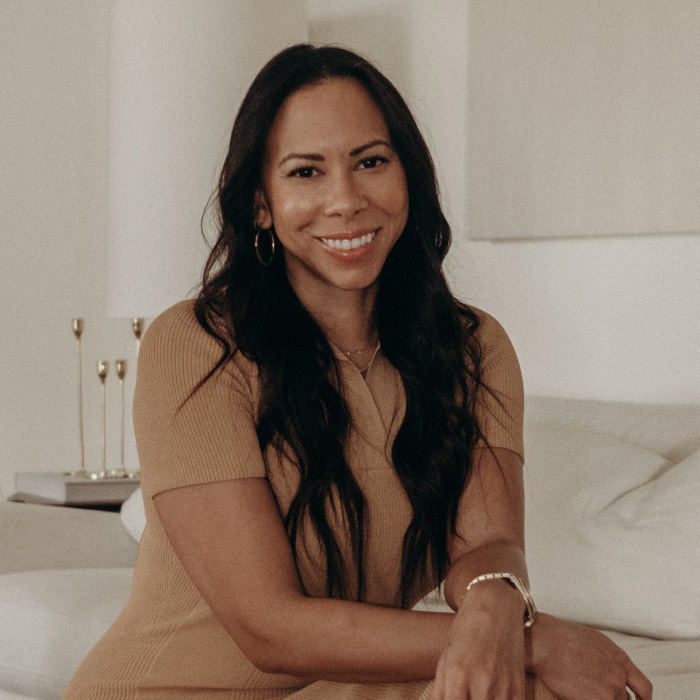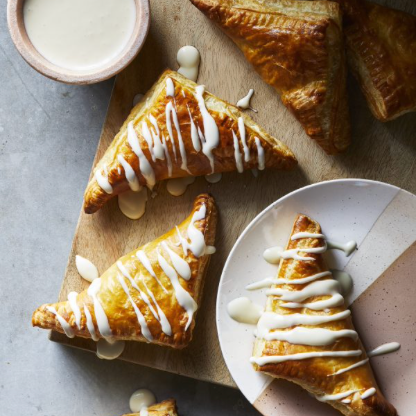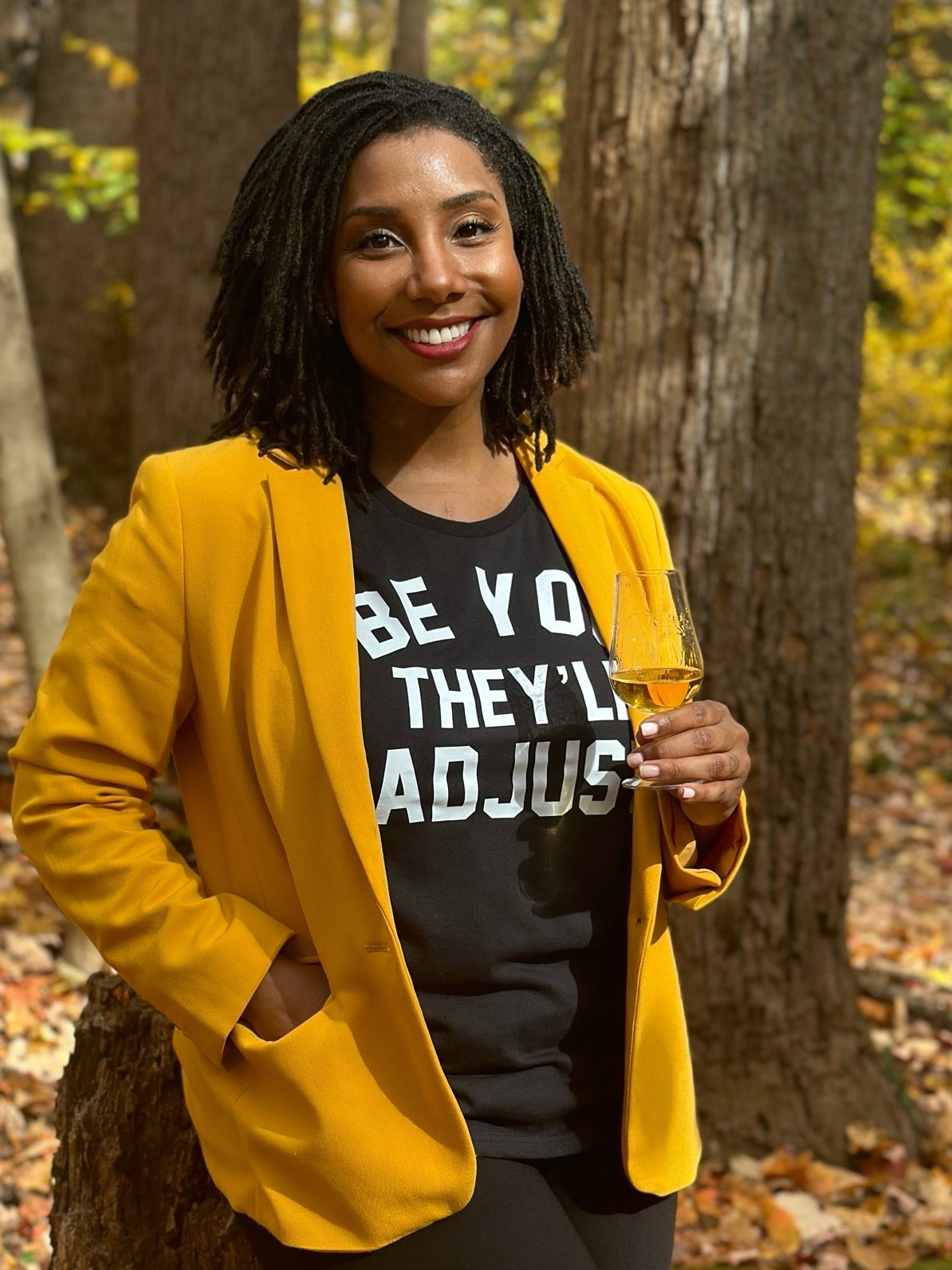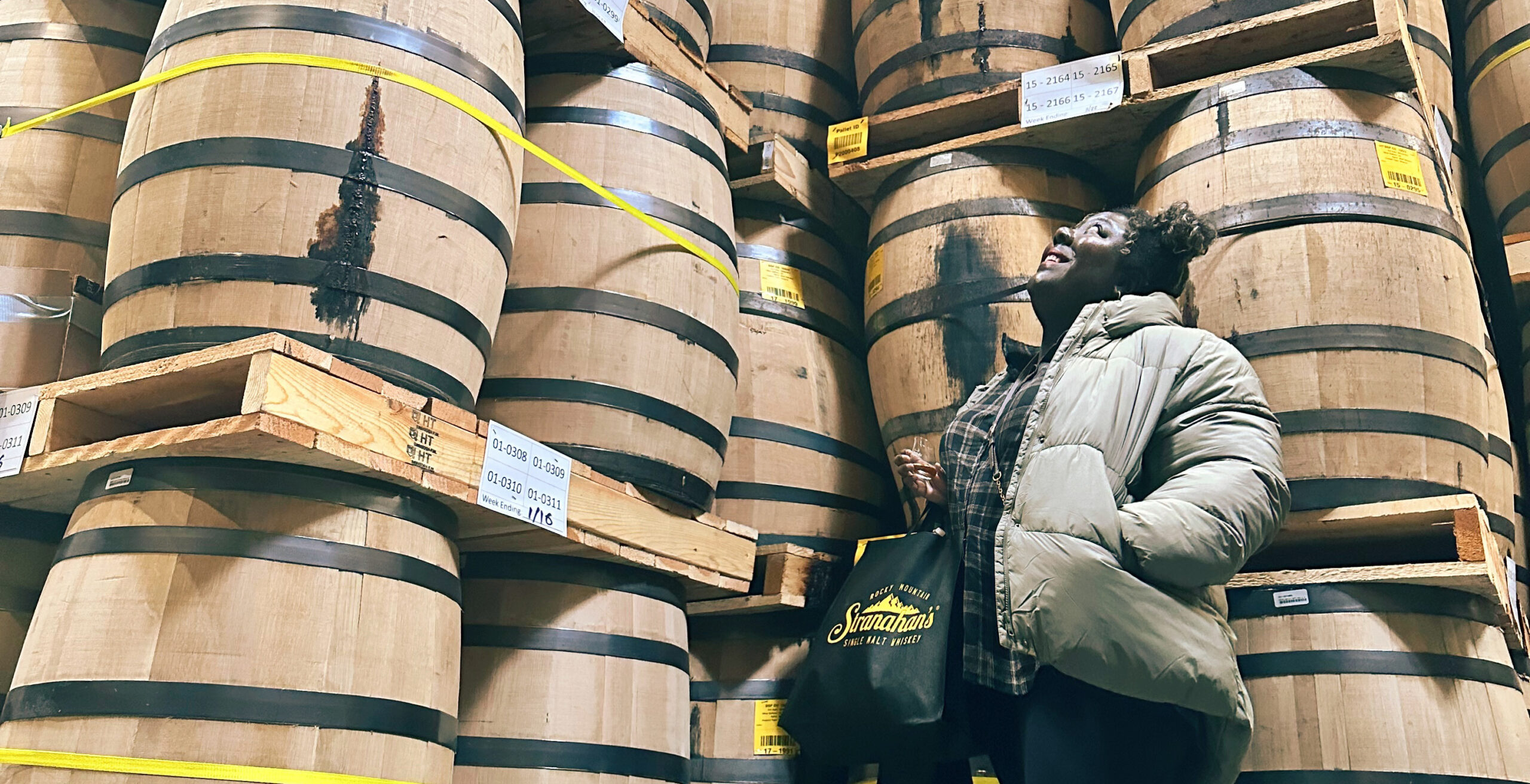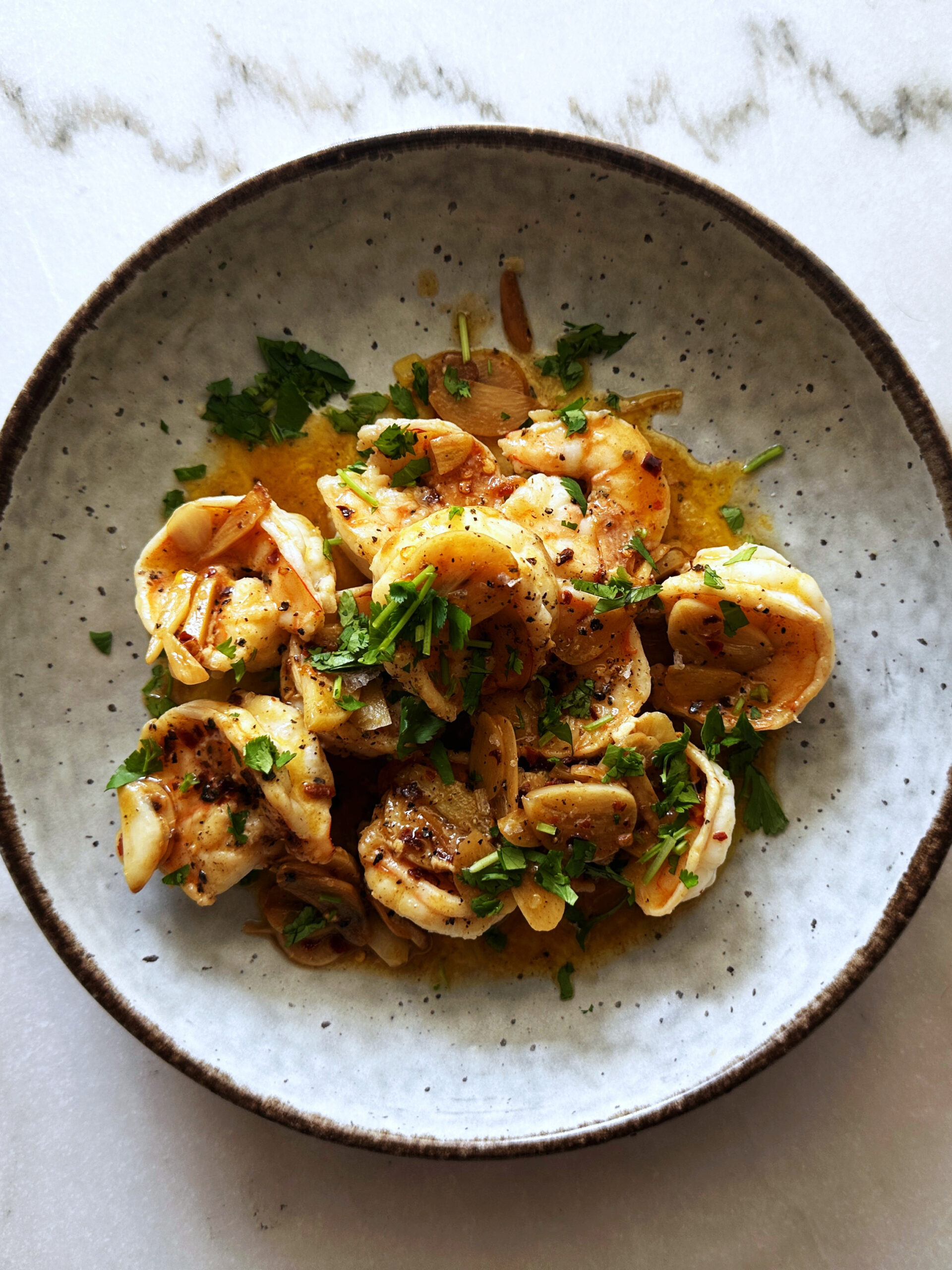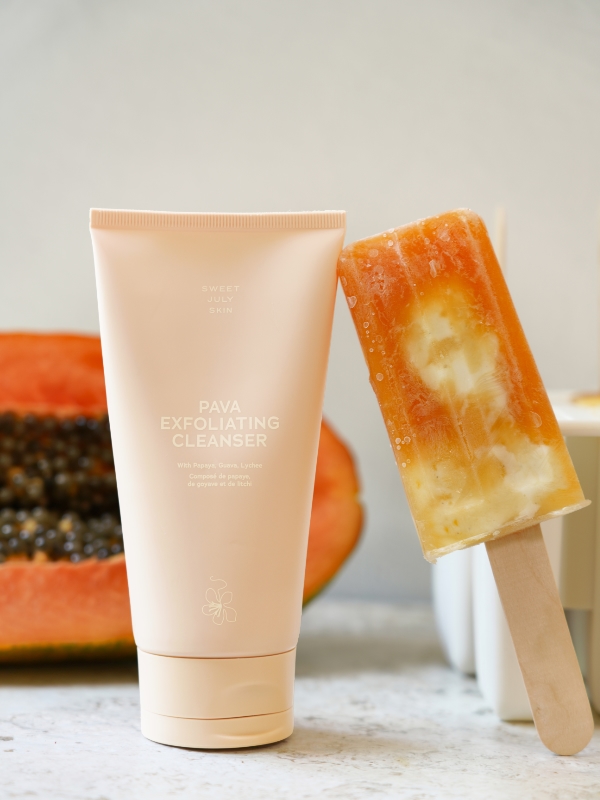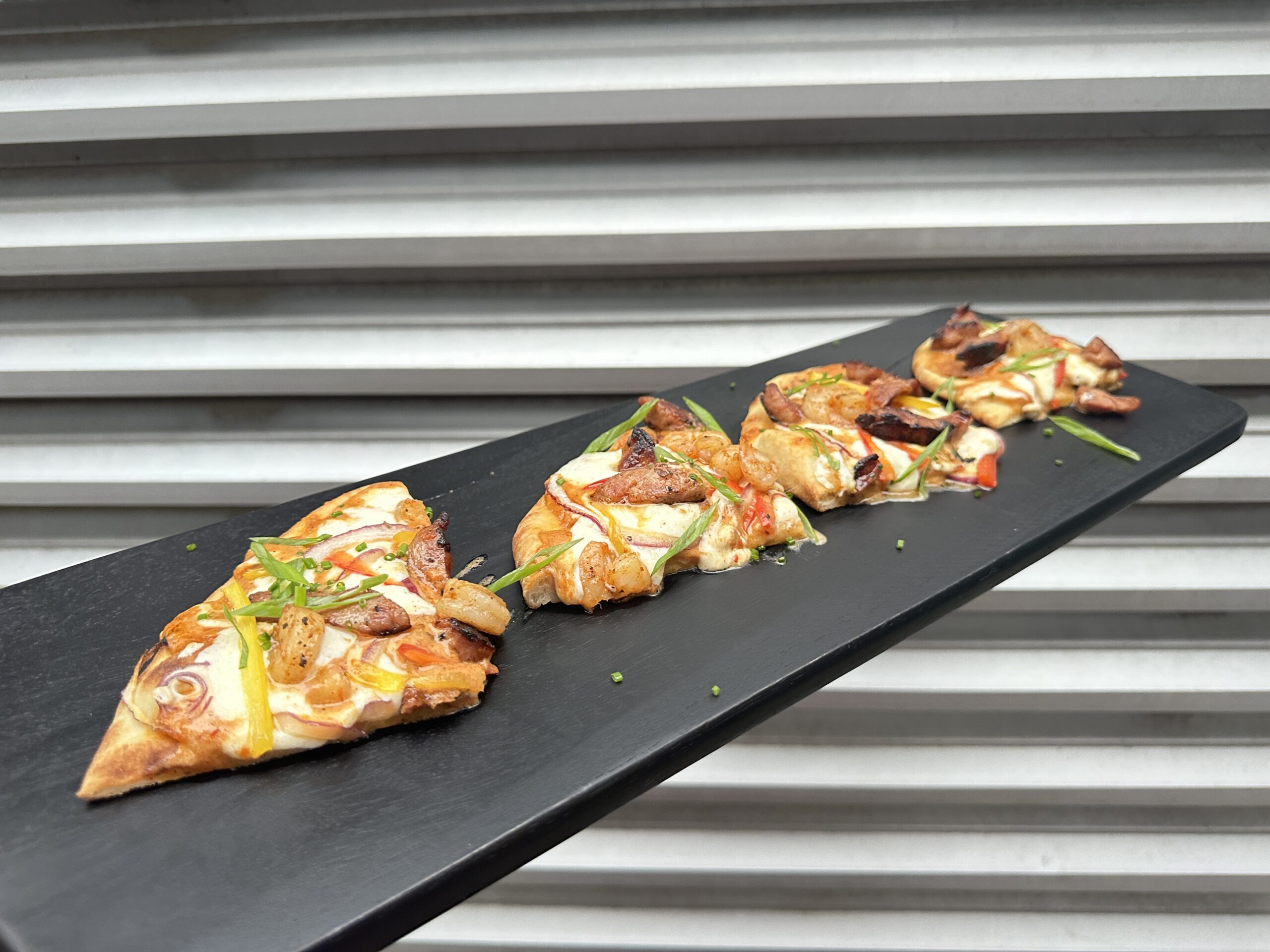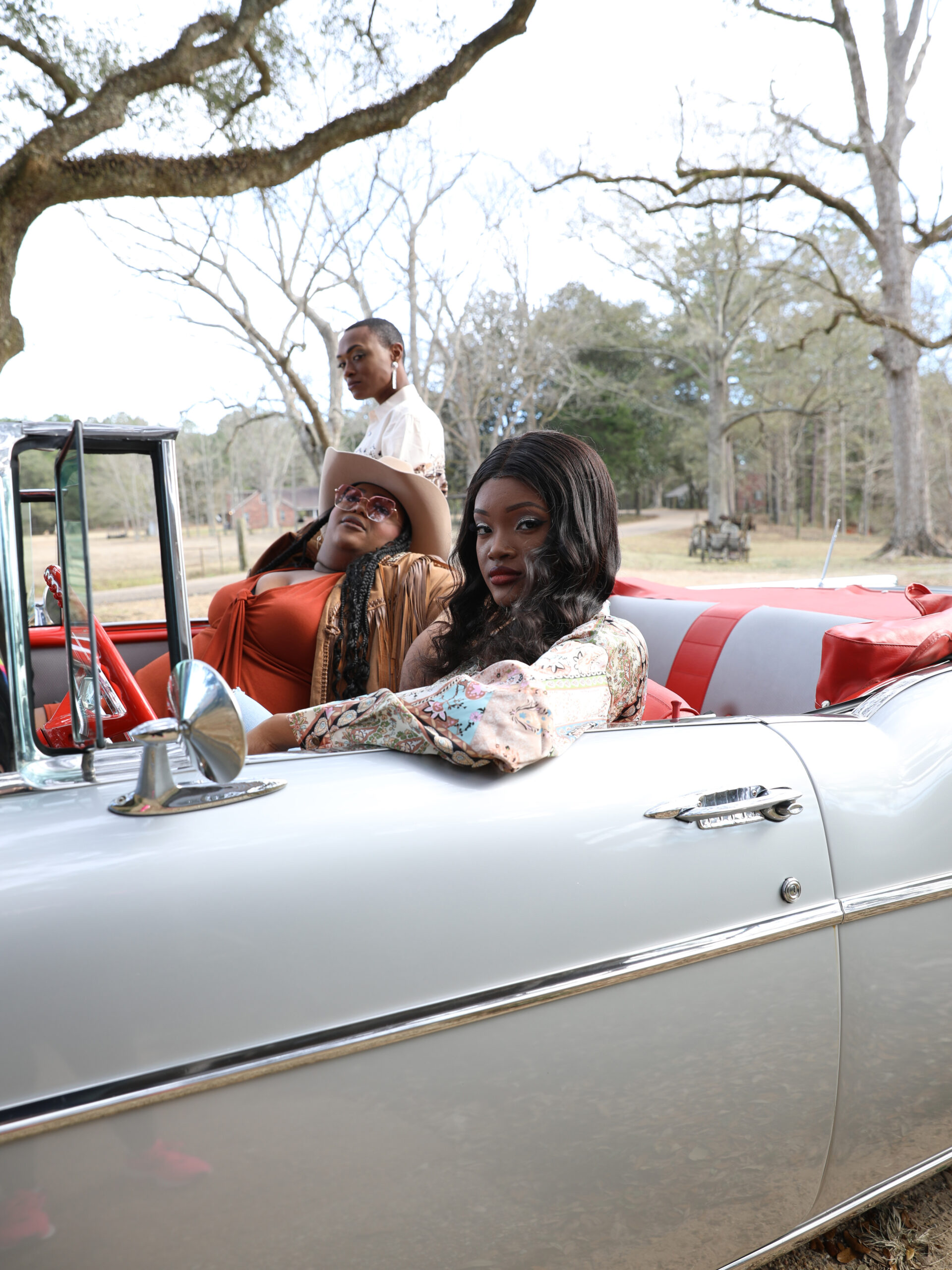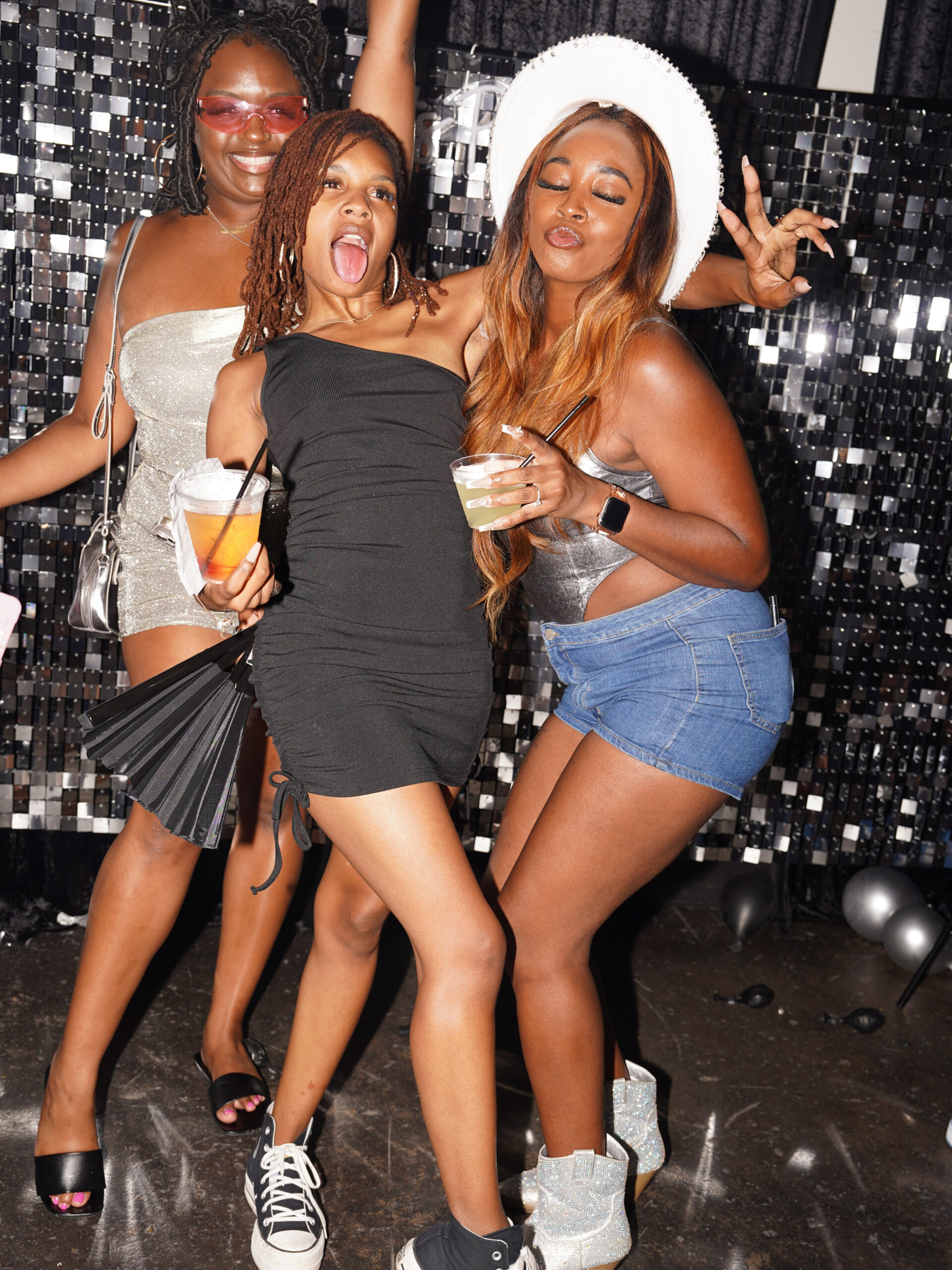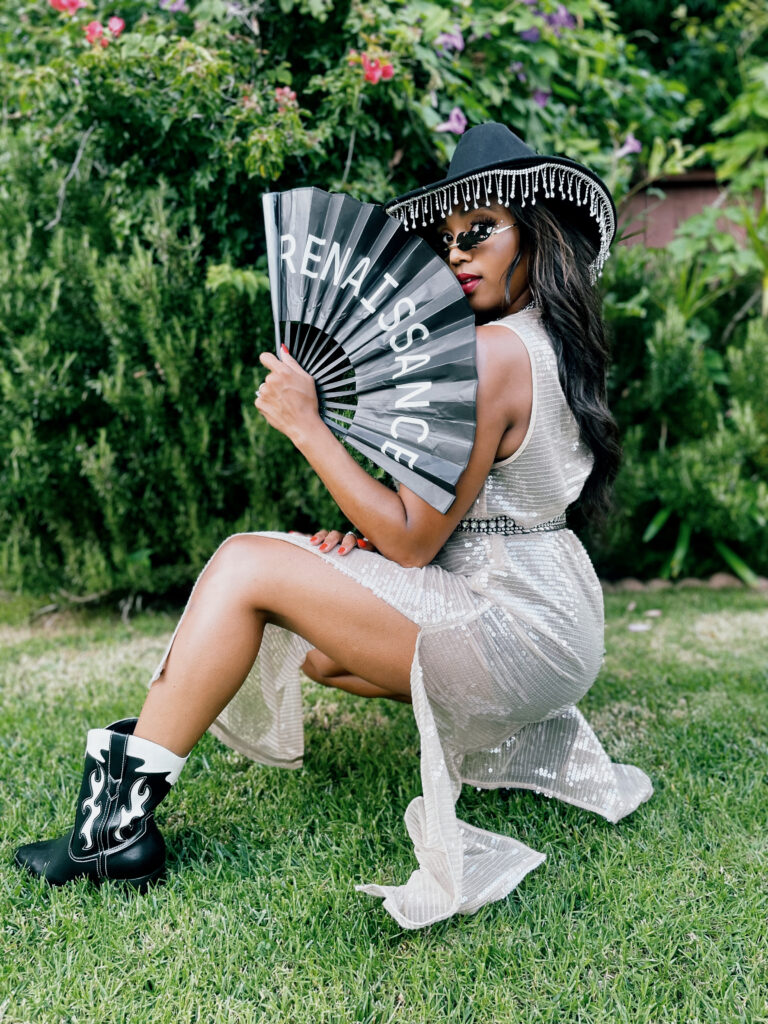Whether you’re a Beyoncé fan or not, there’s no denying her ubiquitous influence. As a Houston, Texas native and longtime fan of Queen Bey, I couldn’t be prouder of her strides as an artist and a mogul in fashion and beauty (she recently debuted her haircare line Cécred).
So, I beamed with pride during Super Bowl LVIII in February after watching her surprise Verizon commercial air, which teased the arrival of new music. Later that evening, Bey unveiled two new singles to the world, “Texas Hold ‘Em” and “16 Carriages.” Unlike the award-winning singer’s past R&B, pop, and house music releases, these two songs hinted at what we now know as Cowboy Carter (out March 29), marking Beyoncé’s deeper plunge into the country genre.
I immediately took to X (formerly Twitter) in a rant:“If the country music world is anything like the whiskey industry, Beyoncé is going to face micro-aggressions like crazy. A successful Black woman in a ‘good ol’ boys club’ (lykyk)?!”
I was right: The two singles and the news of the new country album were met with mixed reviews—with some critics (even radio stations) refusing to acknowledge the tunes as “authentic” country. I wondered: ‘Was genre classification really in question, or was this part of a bigger issue—an affront to a Black woman’s bold foray into a white-dominated world without following its unspoken rules?’
As a Black woman involved in an equally historically underrepresented industry—you guessed it, whiskey—I see the parallel between this boozy world and the flack Beyoncé received for entering country music. Both are, after all, white male-dominated spaces with heavy Southern origins. I’ve yet to meet a fellow Black woman in the whiskey business who hasn’t faced micro-aggressions merely based on stereotypes and expectations of how a whiskey-drinking pro looks. A few bleak stats attest to my thoughts. Although Black Americans represent 12 percent of all consumers in the spirits industry, they only make up 7.8 percent of the labor force and 2 percent of people at the executive level, according to findings from Pronghorn, an independent company investing in the future of Black leaders in spirits. This report doesn’t even include information about the percentage of Black women exclusively involved in whiskey.
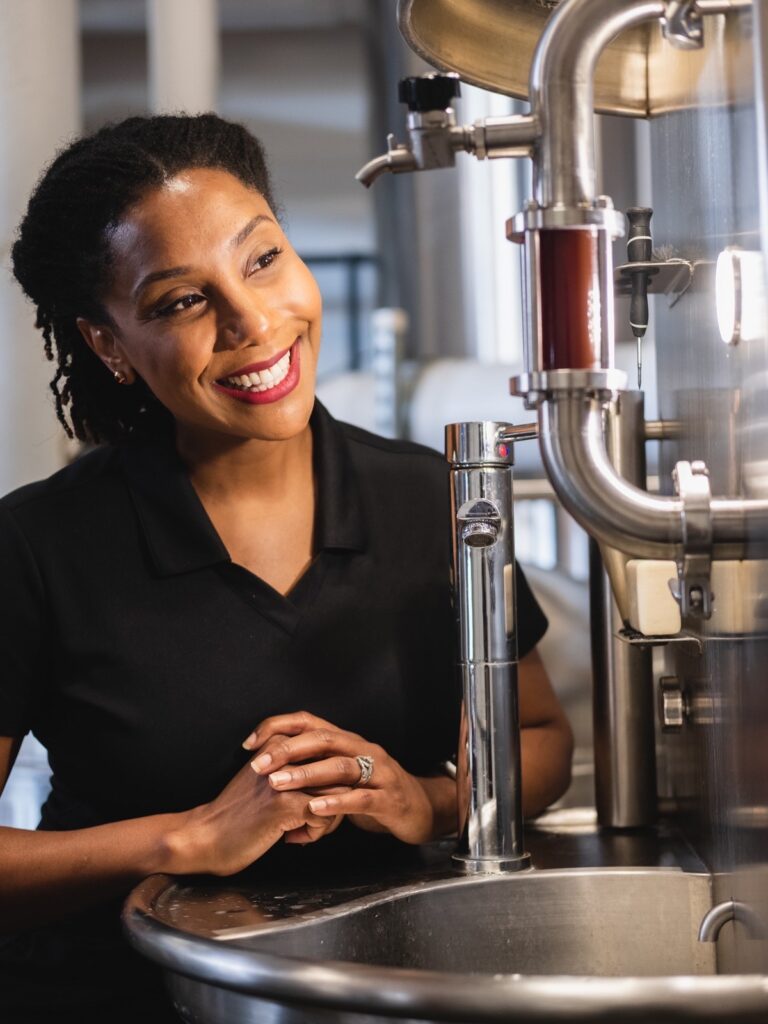
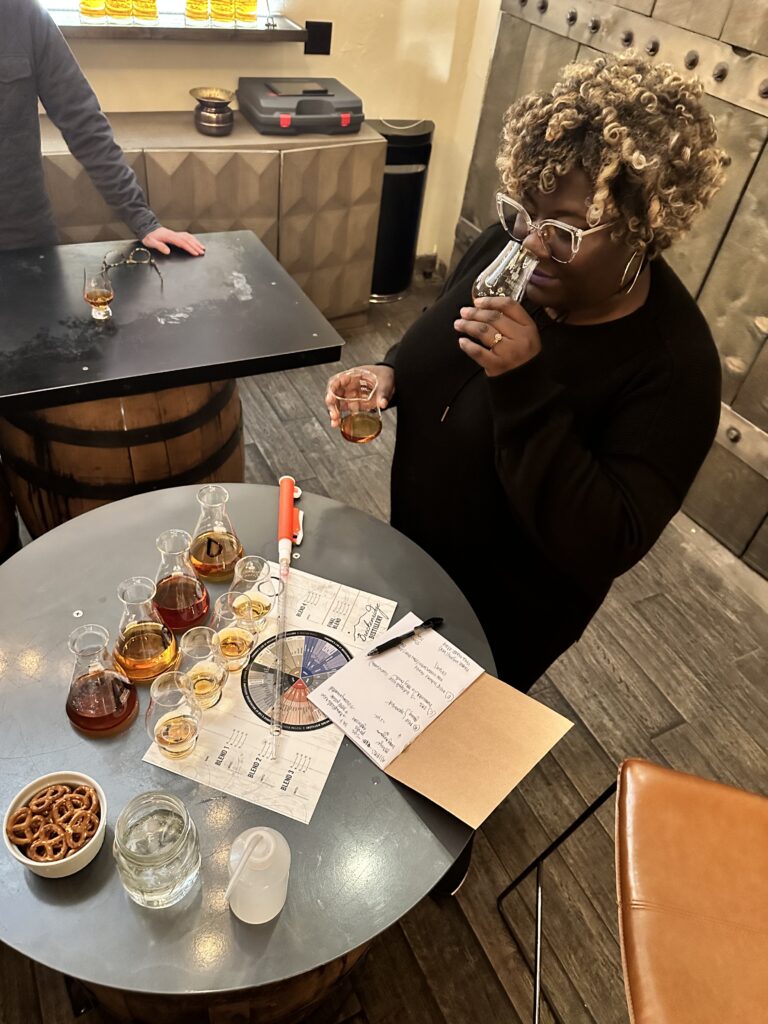
The numbers don’t look any better on the country music side. A SongData study published by Jada Watson, a musicologist at the University of Ottawa, highlights two decades of radio play, award nominations and label representation for Black, indigenous and people of color (BIPOC) artists in country music in comparison to their white peers. The data shows a deep, longstanding disproportion: of the 11,484 country radio songs played from 2002 to 2020, only 23 were by Black women. Prior to the record set by Beyoncé’s “Texas Hold ‘Em” as the highest-charting country song by a Black woman, only Mickey Guyton’s 2015 single “Better Than You Left Me” stood as that record title holder in this century, peaking at No. 30. Yikes.
Although Black people are pioneers in country music and the whiskey world (more on this later), there’s still a lack of acknowledgment and acceptance of these artists and experts—especially if you’re a woman.
100+ Years of “It’s Always Been This Way”
Scotch whisky, American whiskey, and country music share a commonality: these three categories are rooted in 100+ years of tradition. Scotch has been made in Scotland for hundreds of years, with the earliest documented distilling record occurring in 1494. Across the big pond, American-made whiskey developed in the 1770s. However, from the 18th to 20th centuries, in states such as Kentucky and Tennessee, historical records often omit the names of Black people who contributed to the whiskey industry. For example, slaveholders weren’t quick to credit the enslaved men who comprised the bulk of the whiskey force (i.e., Nathan “Nearest” Green, who finally got his proper shine when the Black women-owned Uncle Nearest brand launched in 2017).
Country music also leaves out its co-creation roots. In the 1600s, enslaved people of the African diaspora created the banjo—a stringed instrument often associated with folk and country music—in the Caribbean. By the 19th century in America, Black people continued to popularize this unlabeled sound by playing even more instruments, such as fiddles and later the harmonica and guitar. When the recording industry began in the 1920s, this traditional sound became marketed as the country “genre” we know today—but with 100 years of erasure and heaps of untruths.
Sadly, it’s 2024, and whiskey and the country music industry are still predominantly white male spaces—with very few women and Black people “allowed.”
“It’s this thing that every 25 years, you get some Black women in the country music space,” says Marcus K. Dowling, an award-winning country music reporter for The Tennessean/USA Today Network. “Between 2008 and 2013, you had Rissi [Palmer], Miko Marks, and Mickey [Guyton]. Then, you go back further and had Anita Pointer in the ‘90s. Then, Linda Martell, Ruby Falls, and other artists in the ‘70s. A successful historical precedent has been set.” In other words, representation was kept at a minimum so as not to rock that boat.
The same goes for whiskey. I can count on my hand the number of Black women invited to whiskey press trips. I’m usually the only double minority, and with that comes its set of challenges. I’ve had men speak directly to my mixed-race husband (while ignoring me) at whiskey events because ‘I couldn’t have been one of the esteemed experts.’ But I am. Then, there are condescending comments made to discredit my proficiency. Award-winning whiskey blender, educator, and influencer Tracie Franklin shares my sentiment. Early in her career, she attended classes, events, and tastings and was often the only Black woman. Franklin says, “People would approach me and ask, ‘Where’s your boyfriend?’ or ‘Are you serving today?’ I was never supposed to be there to learn and become a whisky drinker—and I wanted to change that perception because I love whisky!”
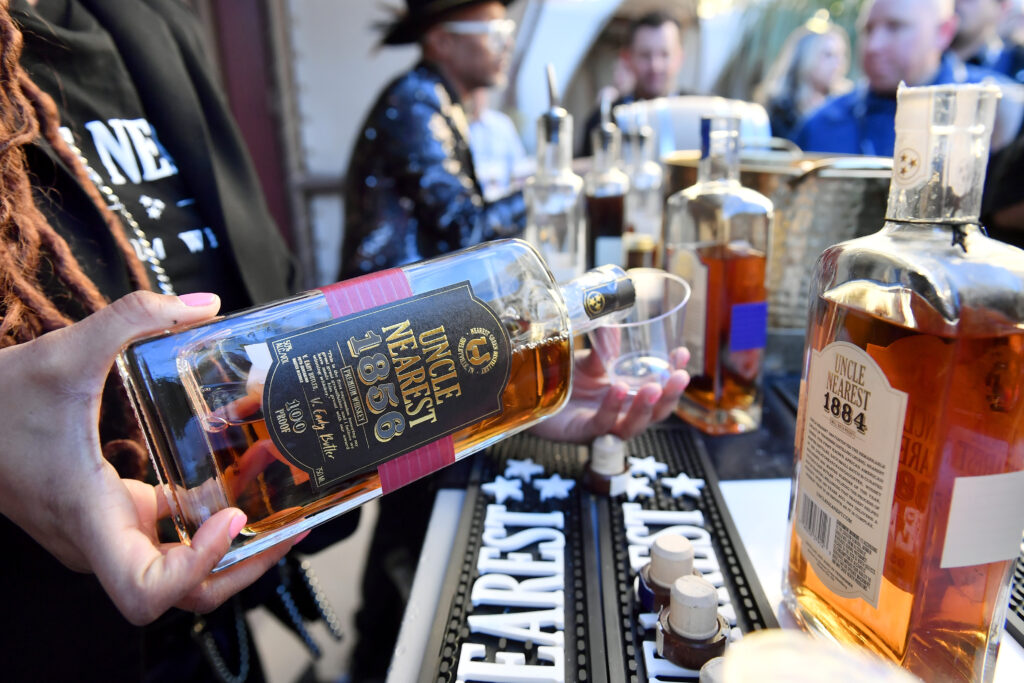
Breaking The Cycle
Breaking apart such antiquated, long-established systems in whiskey, country music, and far beyond these industries is a challenging feat. “A massage and nuance is required to make a system work in your favor when, for a century, it’s decided not to work in your favor,” says Dowling.
For this very reason, Franklin, a former Broadway performer, aims to show spirit leaders what they’re missing by not marketing to Black consumers—and thus, why her presence is needed in the industry. Some have listened: “These brands understood that until they had representation on the other side of that table, they weren’t going to be able to change consumers’ perceptions,” says Franklin. She positioned herself as a needed resource, going on to work for major Scotch players, Ardbeg and Glenmorangie, where she attended different tasting events on behalf of companies. “People were often dumbfounded by the fact that I was not just standing there looking pretty. I wanted to make sure I knew what I was talking about before translating all that knowledge to others in a comfortable, inclusive, and inviting way. That’s what helped me move up in the industry.”
It’s indisputable that increasing Black women’s representation in whiskey and country music could boost buzz and sales—the proof is in the numbers.
Both whiskey and country music are multi-billion-dollar industries. However, for these two worlds to continue to profit and stay future-proof, a shift in marketing is required. Younger, legal-drinking-aged Gen Z consumers in particular—who are more racially and ethnically diverse than any prior generation—are putting their dollars where their values are. According to a 2023 ICSC report, 47 percent of Gen Z consumers want to support brands that address racial and gender equality.
Furthermore, if the country music industry makes a concerted effort to be more inclusive to Black women, it can tap into an additional $300 billion-dollar bag. Plus, there’s the sway Black consumers have in every facet of culture. “Our research shows that Black consumer choices have a ‘cool factor’ that has created a halo effect, influencing not just consumers of color but the mainstream as well,” says research company Nielsen.
And can we talk about the economic impact of Beyoncé alone? According to The New York Times, Beyoncé’s 2023 Renaissance World Tour produced an estimated $4.5 billion for the American economy, about as much as the 2008 Olympics did for Beijing, China! The financial boon from Cowboy Carter is to be determined—though cowboy cocktails are currently trending, proving Beyoncé’s got influence in the spirit industry, too.
Thus, factoring in the billions Black American consumers bring to the economy and the inevitable Beyoncé effect, the decision to exclude Black women in the whiskey world and country music industry is a costly mistake.
Limitless
Beyoncé, via Instagram, shared that Cowboy Carter was a five-year project in the making, coming from a place of triumph. She wrote, “The criticisms I faced when I first entered this genre forced me to propel past the limitations that were put on me. Act ii is a result of challenging myself and taking my time to bend and blend genres together to create this body of work…But, because of that experience, I did a deeper dive into the history of Country music and studied our rich musical archive.” To Bey’s point, I’ve learned never to tell myself no or submit to the limits others may place on me. Country music and whiskey are not “one size fits all.” So, ultimately, their definitions and subsequent culture are subjective.
“I wish people would just step back and go, ‘This is a Black woman wanting to make her most personal music,’” says Dowling, and going back to her Houston roots to create this album is as personal as it gets. On Beyoncé’s latest country singles, Dowling adds, “The first record was, ‘My Uncle Johnny was a good dude, and I love his music. So, I just want to make a homage to his music.’ The second one is, ‘My mom took me to the rodeo. I love Miranda Lambert and Carrie Underwood, and Dolly likes my music.’”
Part of the fun of being an artist or a whiskey pro is introducing something new to a receptive party. It’s rewarding to open people’s palates flavor-wise and musically. Stereotypes may say you don’t belong in country music or whiskey, but that doesn’t make it accurate. “I can always find something perfect for a curious person,” says Franklin about educating new consumers. “Many people will tell you they never drank whisky until they met me. I am doing my best to convert people to this flavorful spirit.”
Like Franklin, Beyoncé looks forward to uniting people and, as she puts it, “amplifying the voices of some of the people who have dedicated so much of their lives educating on our musical history.” When it comes to Cowboy Carter, she also declares: “This ain’t a Country album. This is a Beyoncé album.” Being unapologetically Bey is all we could ever want, and it inspires me to continue my high-proof journey outside the box and without regrets.



